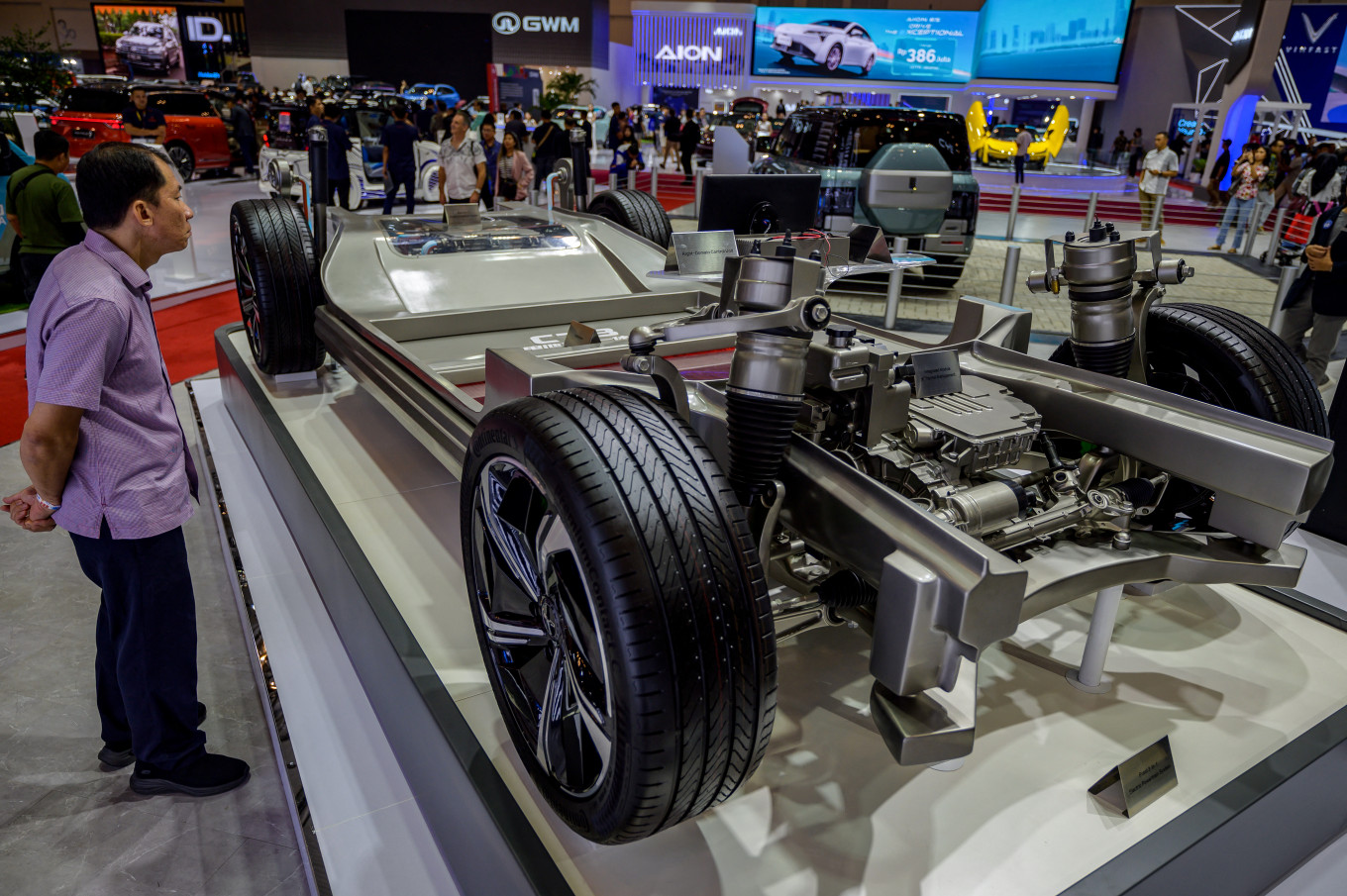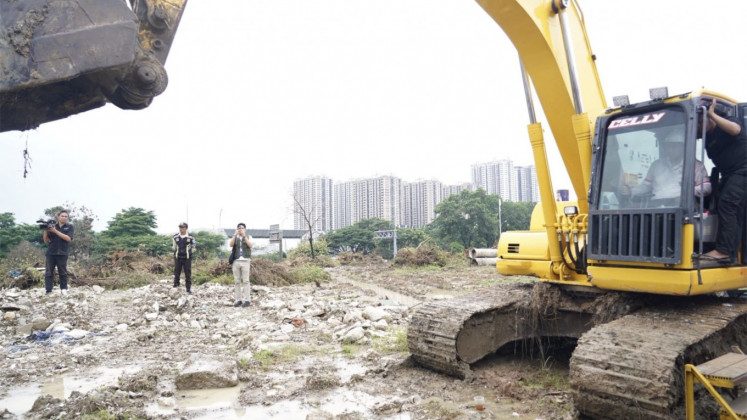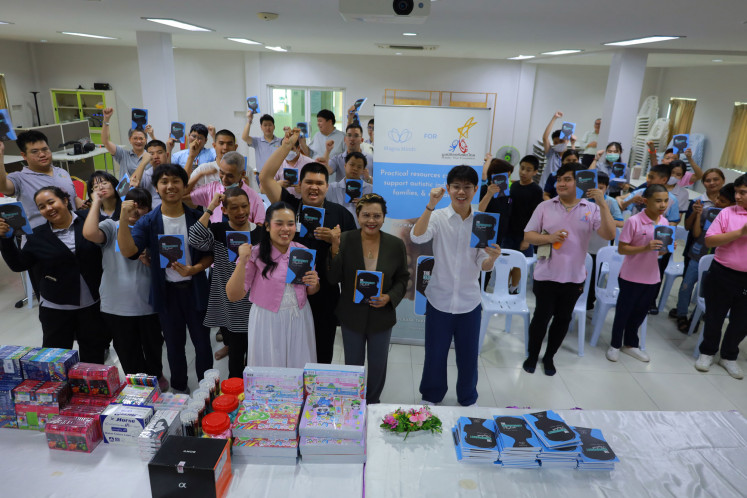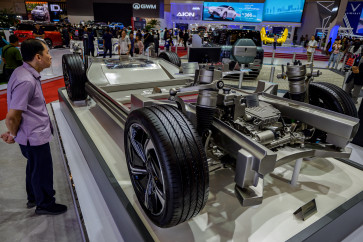Popular Reads
Top Results
Can't find what you're looking for?
View all search resultsPopular Reads
Top Results
Can't find what you're looking for?
View all search resultsLocal EV production slumps amid imports
Change text size
Gift Premium Articles
to Anyone
I
ndonesia’s push to become an EV hub faces new challenges, as relaxed import rules have seen the domestic market flooded with foreign-made cars, causing sharp declines in output from local manufacturers.
Intan Salsabila Firman, a researcher at Tenggara Strategics, a think tank affiliated with The Jakarta Post, pointed out that the government’s move to allow imports of fully built-up (CBU) and completely knocked down (CKD) EVs may have hurt local production.
In 2023, Indonesia saw an average of around 900 domestically produced EV cars sold each month. Following the relaxation of the import policy, that figure dropped sharply, to a monthly average of 288 such vehicles.
The influx of imported EVs has made for stiffer competition for local manufacturers, who are still building up their production capacity and supply chains.
“The government must be more careful in [devising strategies to] attract investment and in [pushing] EV adoption,” she said during the RE Invest Indonesia 2025 forum held in Jakarta on Thursday.
Intan suggested the government set import quotas for EVs to prevent overwhelming local EV manufacturers with imports and to promote domestic manufacturing.
“[As a] mitigation [effort], the government could enforce EV import quotas, especially for those using lithium-iron-phosphate [batteries],” she said.


















